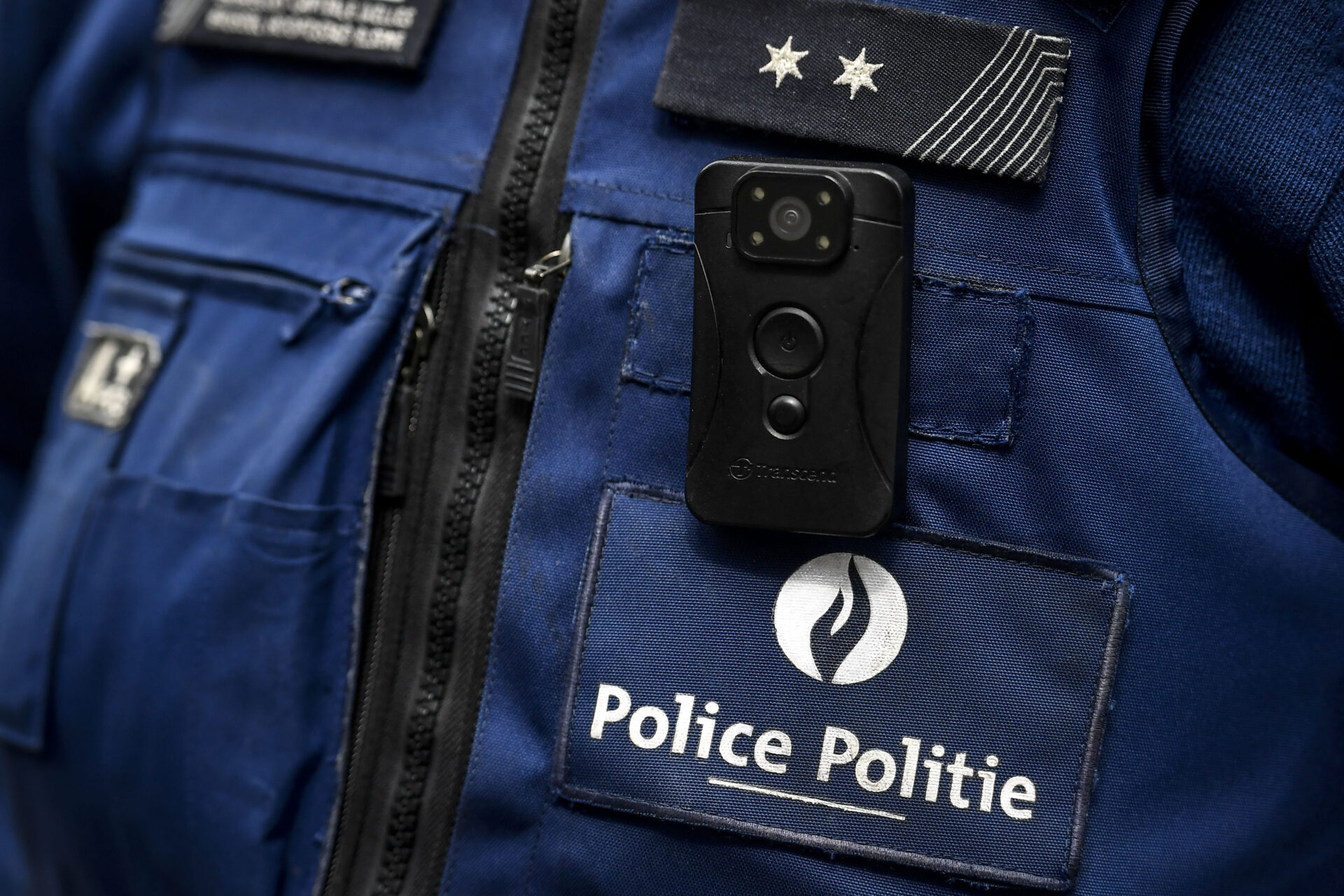Swedish private security group Securitas will provide nearly 5,000 bodycams to federal and local police in Belgium over the next four years, as part of a broader contract with Belgian law enforcement, Le Soir reports.
Securitas were awarded the public contract despite a regulation on the use of these wearable recording devices still pending under Belgian law. The multinational company already provides other services to the police force.
The agreement on bodycams is estimated to be worth €22 million, but the exact value is yet unknown.
This latest move will push forward the Swedish company's integration into Belgian law enforcement, according to Le Soir. Belgian telecommunications operator Proximus was first considered as a contract beneficiary last year, but the company was eventually sidelined in favour of Securitas, Le Soir reports.
The new draft agreement between Securitas and the Belgian police would see the supply of over 3,100 body cameras for federal police and 1,800 for local police, as well as 400 for the defence forces and 200 for customs authorities.
New ties in an existing friendship
In Belgium, Securitas already supplies bodycams to 75 police jurisdictions, according to Carolle Van Dijck, a company spokesperson. It is also the main supplier of licence plate recognition cameras for the federal police and has a close partnership with a police dispatch in West Flanders.
In the Vlas police zone, which contains the Kortrijk, Kuurne and Lendelede municipalities, the private security operator is responsible for answering "non-emergency" calls.
Securitas employees in the area are also allowed to access local surveillance cameras. Coincidentally, the Vlas police zone is also the home address of the Belgian Minister of Justice Vincent Van Quickenborne, Le Soir reports.

Policeman wearing a bodycam in Brussels. Credit: Belga / Dirk Waem
Thanks to another 2016 framework agreement, Securitas was granted the opportunity to provide digital tools and software to local authorities in Belgium, including the police.
Bodycams in use
Body cameras (or bodycams) are audio-video recording devices which are pinned to the uniform of a police officer. Bodycams are intended to reduce conflicts in the interactions between law enforcement and civilians, providing footage as potential proof.
Many police officers, patrol supervisors, dog handlers and traffic officers already use bodycams in Belgium. After an initial approval of the preliminary proposal in the Council of Ministers last November, bodycam regulation is still under work. Even so, these devices are commonplace in Namur, Liège, Ghent, Brussels and La Louvière, according to Le Soir.
Related News
- Students assess Belgian murder cases for wrongful convictions
- Over 100,000 driving licences revoked in Belgium last year
- 'Dirty Cop': New investigation into dysfunction of Belgian police
While bodycams aim to enforce police accountability and facilitate de-escalations of tense situations, civil rights organisations from countries where they are widely used warn that this is not necessarily the case. The American Civil Liberties Union (ACLU) found in 2017 that the use of bodycams had no effect on the number of police officers using unnecessary force in the Washington DC area.
According to the Belgian Minister of the Interior, Annelies Verlinden, the motivation behind the use of bodycams in Belgian policing is "above all" to protect police officers from violent incidents. The regulation, as it stood in December last year, would allow officers to turn the recording on and off as they see fit.

